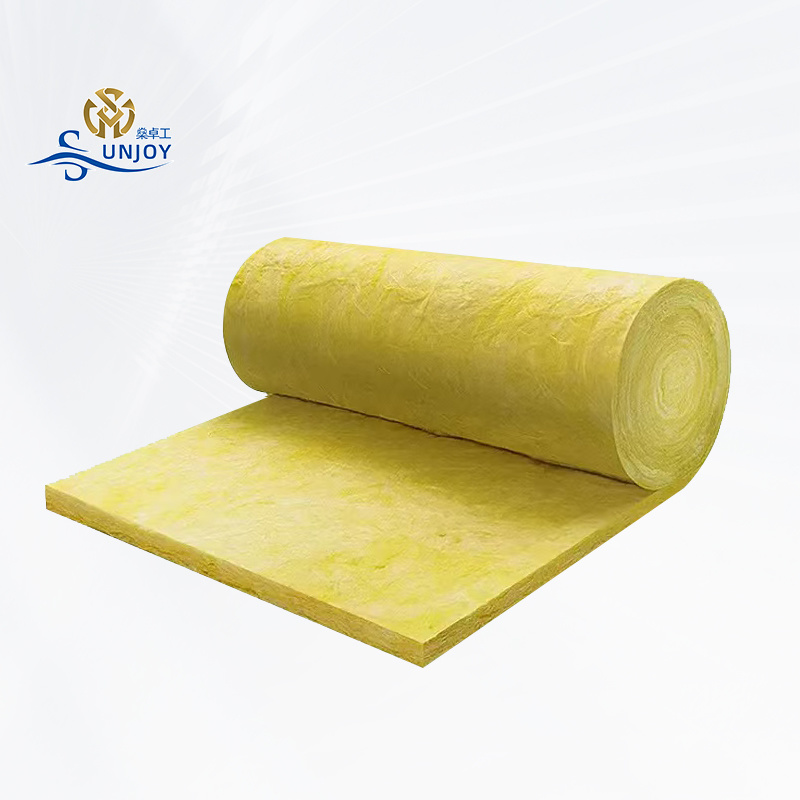Glass Wool Boards: A Comprehensive Comparison for Residential and Commercial Applications
Jul 21,2025

Glass Wool Boards for Residential vs. Commercial Applications: A Comparison
Introduction to Glass Wool Boards
Glass wool boards are recognized as one of the most effective insulation materials in the construction industry. Made from fine glass fibers, these boards provide excellent thermal and acoustic insulation. They are lightweight, easy to handle, and offer a range of benefits that make them suitable for both residential and commercial applications. This article provides a comprehensive comparison of glass wool boards when used in homes versus commercial buildings, focusing on performance, installation, cost, and other important factors.
Understanding Glass Wool: What Sets It Apart?
Glass wool is a type of insulation made from recycled glass, which is melted and spun into fine fibers. The unique composition of glass wool offers several advantages:
- Thermal Insulation: Glass wool has a high R-value, making it an effective insulator against heat transfer.
- Sound Absorption: Its fibrous structure allows for effective sound dampening, making it ideal for noisy environments.
- Fire Resistance: Glass wool is non-combustible, providing an added layer of safety in both residential and commercial constructions.
- Moisture Resistance: It resists moisture absorption, which prevents mold growth and enhances durability.
Residential Applications of Glass Wool Boards
When it comes to residential uses, glass wool boards are often employed in attics, walls, and floors to enhance energy efficiency and comfort. Here’s a closer look at their specific applications and benefits in residential settings.
1. Thermal Efficiency in Homes
In residential buildings, glass wool boards contribute significantly to thermal efficiency. They help maintain comfortable indoor temperatures, reducing the need for heating and cooling systems. This not only enhances comfort but also leads to lower energy bills.
2. Acoustic Benefits for Homeowners
Noise control is a vital aspect of residential comfort. Glass wool's sound-absorbing qualities make it an excellent choice for reducing noise between rooms or from outside sources. This is particularly beneficial in urban areas where external noise can be disruptive.
3. Cost-Effectiveness in Residential Projects
The initial investment in glass wool insulation may seem significant, but the long-term savings in energy costs can outweigh this. Homeowners can expect a return on investment through lower utility bills and increased property value.
4. Installation and Maintenance
Glass wool boards are relatively easy to install, making them a popular choice for DIY homeowners. They can be cut to size with simple tools, allowing for straightforward fitting in various applications. Additionally, they require little maintenance once installed, providing hassle-free insulation for years.
Commercial Applications of Glass Wool Boards
In commercial buildings, the requirements for insulation can be more stringent due to larger spaces and more complex designs. Glass wool boards are extensively used in a variety of commercial applications.
1. Enhanced Energy Efficiency for Businesses
Similar to residential applications, glass wool boards in commercial buildings significantly improve thermal efficiency. They help businesses maintain optimal temperatures, which is crucial for both employee comfort and operational efficiency.
2. Fire Safety Regulations
Commercial buildings often face stricter fire safety regulations. The non-combustible nature of glass wool boards makes them an excellent choice, as they help meet safety standards while providing effective insulation.
3. Versatile Applications in Commercial Spaces
From office buildings to warehouses, glass wool boards can be adapted to various applications. They are suitable for walls, ceilings, and even ductwork, providing flexibility in design and construction.
4. Long-Term Cost Savings for Businesses
While the upfront costs of glass wool boards can be higher than other insulation materials, the durability and performance of glass wool lead to significant long-term savings. Lower energy costs and reduced maintenance contribute to a favorable cost-benefit ratio.
Comparative Analysis: Residential vs. Commercial Use
When comparing residential and commercial applications of glass wool boards, several key differences emerge.
1. Insulation Performance
In residential settings, the focus is often on comfort and energy savings. In contrast, commercial applications prioritize meeting regulations and ensuring safety while maintaining efficiency. Both settings benefit from the thermal and acoustic properties of glass wool.
2. Installation Differences
Installation of glass wool boards in residential buildings typically involves smaller areas and simpler configurations. Commercial installations, however, may require specialized teams due to larger spaces and complex building designs.
3. Regulatory Considerations
Commercial buildings must adhere to stricter building codes and safety standards, particularly regarding fire safety. Glass wool boards meet these requirements effectively, making them a preferred choice in commercial projects.
4. Cost Considerations
While the cost of glass wool boards is a relevant factor in both residential and commercial applications, businesses often have the advantage of economies of scale. They may purchase in bulk, reducing costs per square foot.
Environmental Impact and Sustainability
In recent years, sustainability has become a significant consideration in both residential and commercial construction. Glass wool boards are eco-friendly, as they are made from recycled materials and contribute to energy savings.
1. Recyclable Materials
Glass wool is primarily made from recycled glass, which minimizes waste and reduces the environmental footprint of the manufacturing process.
2. Energy Savings and Carbon Footprint
By improving insulation, glass wool boards help reduce energy consumption in both residential and commercial buildings, leading to lower carbon emissions and a reduced overall impact on the environment.
Frequently Asked Questions (FAQs)
1. What is the R-value of glass wool boards?
The R-value of glass wool boards typically ranges from R-3.0 to R-4.2 per inch of thickness, depending on the specific product and application.
2. Can glass wool boards be used in humid areas?
Yes, glass wool boards are moisture-resistant, making them suitable for use in humid environments without the risk of mold growth.
3. How do installation costs compare between residential and commercial applications?
Installation costs can vary widely based on the project size and complexity, but commercial installations may require specialized labor, potentially increasing costs.
4. Are glass wool boards safe for indoor use?
Yes, glass wool boards are safe for indoor use and do not release harmful substances once installed.
5. How long do glass wool boards last?
With proper installation and maintenance, glass wool boards can last 40 years or more, depending on environmental conditions and usage.
Conclusion
In conclusion, glass wool boards present a versatile and effective insulation solution for both residential and commercial applications. Their thermal efficiency, fire resistance, and acoustic properties make them an ideal choice across various settings. While the specific needs and regulations may differ between residential and commercial projects, glass wool boards consistently provide excellent performance, cost-effectiveness, and sustainability. Understanding these differences can help homeowners and business owners make informed decisions when selecting insulation materials for their projects. By choosing glass wool boards, you are investing in a durable, energy-efficient solution that benefits both your space and the environment.
PREVIOUS:
Contact Us
Company:Sunjoy (Tianjin) Tecnology Go.,Ltd
General Manager: White Eric
Email: admin@sunjoy-rockwool.com
Wechat: +86 18002010981
Tel: +86 4009950775
Address: Room 1002, Juding Buliding, Jinnan District, Tianjin.china


